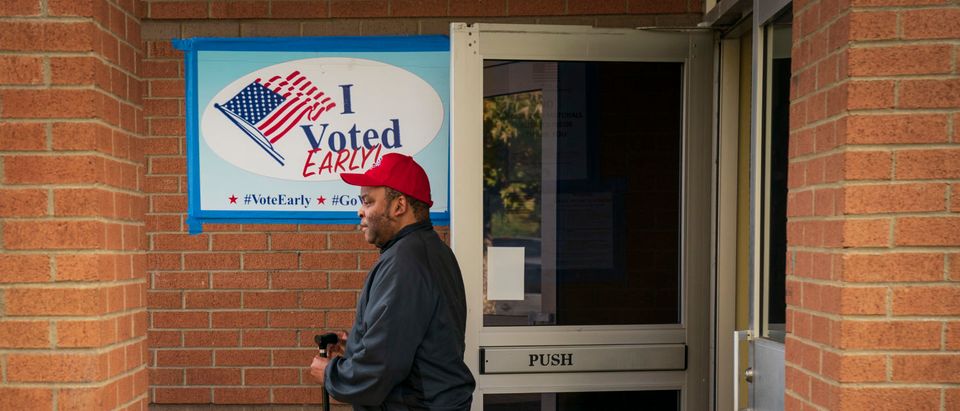The U.S. Supreme Court says each state legislature has “plenary” (complete) power to decide how its state’s presidential electors are chosen.
But suppose a state legislature decided to raise cash by selling its electors to the highest bidder. Do you think the Supreme Court would uphold such a measure?
If your answer is “no,” then you intuitively grasp a basic principle of constitutional law — one overlooked by those proposing the “National Popular Vote Compact” (NPV).
NPV is a plan to change how we elect our president. Under the plan, each state signs a compact to award all its electoral votes to the presidential candidate who wins the national popular vote. The compact comes into effect when states with a majority of presidential electors sign on.
In assessing the constitutionality of NPV, you have to consider some of its central features. First, NPV abandons the idea that presidential electors represent the people of their own states. Second, it discards an election system balanced among interests and values in favor of one recognizing only national popularity. That popularity need not high: A state joining the NPV compact agrees to assign its electors to even the winner of a tiny plurality in a multi-candidate election.
Third, because NPV states would have a majority of votes in the Electoral College, NPV would effectively repeal the Constitution’s provision for run-off elections in the House of Representatives.
Fourth, NPV requires each state’s election officer to apply the vote tabulations certified by other state election officers — even if those tabulations are known to be fraudulent or erroneous. Indeed, NPV would give state politicians powerful incentives to inflate, by fair means or foul, their vote totals relative to other states.
Don’t changes that sweeping require a constitutional amendment?
In answer to this question, NPV advocates point out that the Constitution seemingly gives state legislatures unlimited authority to decide how their electors are appointed. They further note that the Constitution recognizes the reserved power of states to make compacts with each other. Although the Constitution’s text requires that interstate compacts be approved by Congress, NPV advocates claim congressional approval of NPV is not necessary. They observe that in U.S. Steel v. Multistate Tax Comm’n (1978) the Supreme Court held that Congress must approve a compact only when the compact increases state power at the expense of federal power.
NPV advocates may be wrong about congressional approval. It is unclear that the justices would follow U.S. Steel’s ruling now. The Constitution’s language requiring congressional approval is crystal clear, and the court today is much more respectful of the Constitution’s text and historical meaning than it was in 1978. Moreover, you can make a good argument that U.S. Steel requires congressional approval for NPV because NPV would weaken federal institutions: It would (1) abolish the role of the U.S. House of Representatives in the electoral process and (2) alter the presidential election system without congressional involvement. Furthermore, even the U.S. Steel case suggested that compacts require congressional approval whenever they “impact … our federal structure.”
A more fundamental problem with NPV, however, is that with or without congressional approval it violates a central principle of constitutional law.
The Constitution recognizes two kinds of powers: (1) those reserved by the Tenth Amendment in the states by reason of state sovereignty (“reserved powers”) and (2) those created and granted by the Constitution itself (“delegated powers”). Reserved powers are, in James Madison’s words, “numerous and indefinite,” but delegated powers are “few and defined.”
A state’s power to enter into a compact with other states is reserved in nature, and it almost always involves other reserved powers, such as taxation and water use. Such was the compact examined by the Supreme Court in the U.S. Steel case.
As for delegated powers, the Constitution grants most of these to agents of the federal government. However, it also grants some to entities outside the federal government. Recipients include state legislatures, state governors, state and federal conventions, and presidential electors.
The scope of delegated powers is “defined” by the Constitution’s language, construed in light of its underlying purpose and its historical context. If state lawmakers or officers try to employ a delegated power in a way not sanctioned by its purpose and scope, the courts intervene.
For example, the courts often have voided efforts to exercise delegated powers in the constitutional amendment process in ways inconsistent with purpose or historical understanding. This is true even if the attempt superficially complies with the Constitution’s text.
Like a state legislature’s authority to act in the amendment process, its power to decide how electors are appointed is a delegated one. In exercising it, the legislature must comply with the overall purpose of the presidential election system and the historical understandings surrounding it. For example, the founders, including those who approved the 12th amendment, designed the system to serve multiple interests, not merely candidate popularity. And they conceived of an elector as a person who acted on behalf of the people of his state — much like a legislator, but with more limited functions.
In deciding how electors are appointed, state lawmakers may choose among a range of procedures. But they have a constitutional duty to choose a method consistent with the electoral system’s purpose and design. Attempting to convert electors into agents of other states — like selling them to the highest bidder — would be an unconstitutional breach of public trust.
Robert G. Natelson was a law professor for 25 years specializing in constitutional law, constitutional history and related courses. He is presently senior fellow in Constitutional Jurisprudence at the Independence Institute in Denver. He has published extensively on the Constitution and is the author of The Original Constitution: What It Actually Said and Meant.
The views and opinions expressed in this commentary are those of the author and do not reflect the official position of The Daily Caller.












